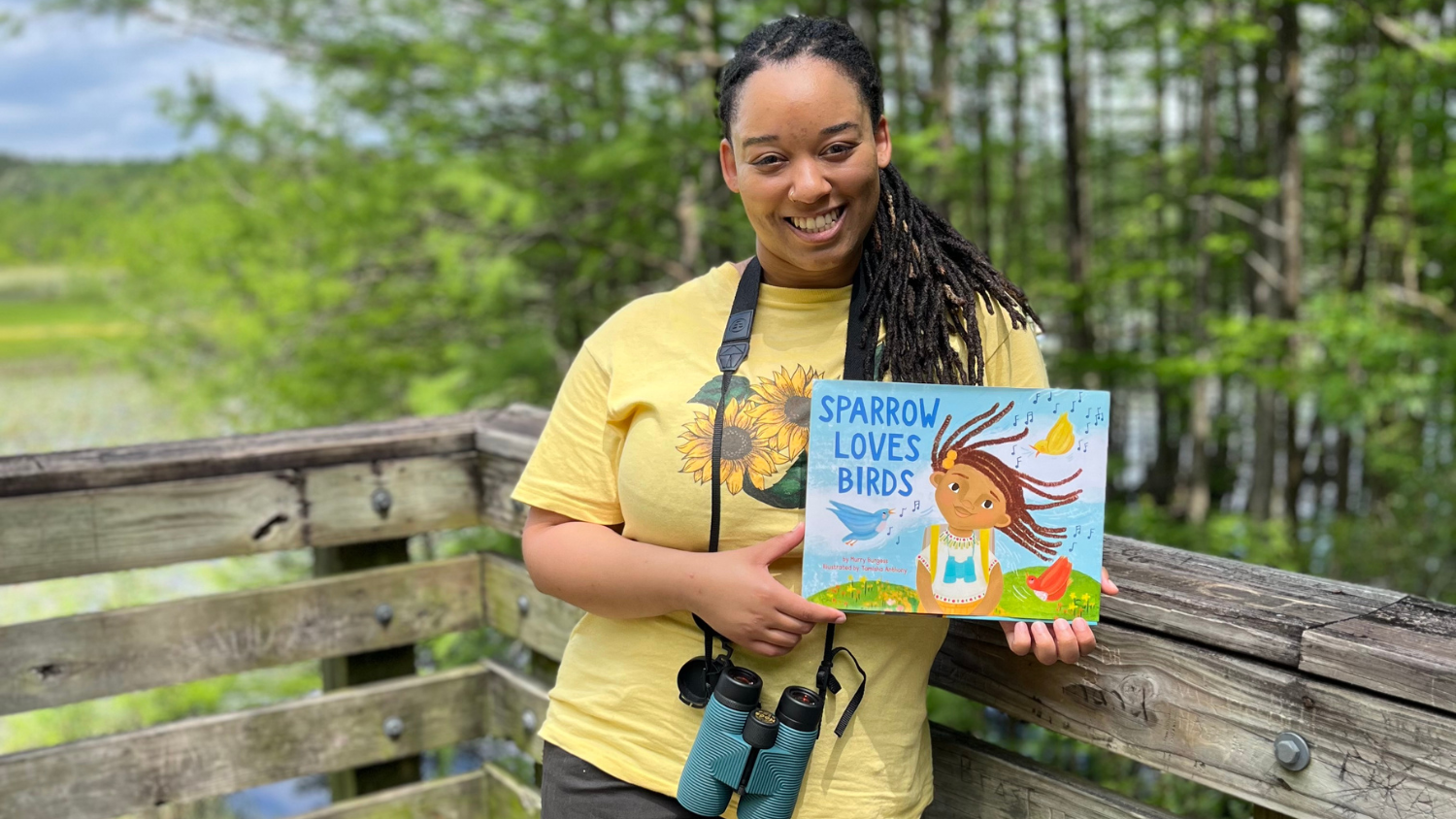Murry Burgess ’23 is Mentoring the Next Generation of Conservation Leaders

A passion for research and mentorship led Murry Burgess ‘23 to a career in academia as an assistant professor in the Department of Wildlife, Fisheries and Aquaculture at Mississippi State University.
Following in her mother’s footsteps, teaching was always in the back of Burgess’ mind as she completed her undergraduate and graduate studies. But she struggled with whether to begin her career in academia or industry.
Burgess earned a bachelor’s degree in wildlife, fisheries and aquaculture at Mississippi State University in 2019 before completing a doctoral degree in fisheries, wildlife and conservation biology at NC State in 2023.
“What really inspired me to become a professor is kind of the story of students that I knew who wished they had a certain type of mentor and wished they had someone who looked like them represented,” Burgess said. “I wanted to provide what that generation was lacking a little bit.”
At Mississippi State, Burgess teaches applied ecology two days a week. She will begin teaching a course about animal behavior in the fall. Burgess hopes to eventually teach a course about the relationship between science and society.
Burgess said she hopes to make a lasting impact on the lives of her students, citing a desire to serve as the “type of mentor, guide and representation that might not be present in a lot of students’ lives.”
“Our department is becoming more diverse as students from different backgrounds enroll,” Burgess said. “It’s important to me that those students receive the same attention and interest as all of the other students.”
Science for the Public
The College of Natural Resources helped Burgess tremendously in her own studies, especially when she worked alongside her advisor Caren Cooper, a professor of forestry and environmental resources, on citizen science projects.
“Dr. Cooper really allowed me to take the wheel on my own graduate project. I helped design it and even wrote several grants,” Burgess said. “Those experiences really prepared me to be able to apply what I learned to be an assistant professor.”
Burgess also served as a Global Change Research Fellow, an experience that allowed her to work on solutions to climate change and really learn how to apply the science and how to reach the public with it.
Looking toward the future, Burgess aspires to establish long-term research projects at Mississippi State that will contribute to the citizen science database and encourage more people to participate in different ecology-related activities.
Burgess is currently working to launch the research aspects of her lab at Mississippi State, where she will have the aid of two graduate student workers and four undergraduate volunteers.
Her research will be a continuation of her graduate studies on avian conservation, with a focus on how light pollution impacts birds. She will also conduct public science outreach throughout the city of Starkville, Mississippi.
“I want to be able to involve more of the public, both on campus, and more students who are not in this department, as well as the Starkville people in general, to get them more involved with birdwatching, ornithology and general sustainability.”
Life Beyond the Classroom
When she’s not hard at work, Burgess enjoys hiking and birdwatching with friends and her pitbull-lab mix Loki, reading, and playing video games. She also enjoys writing children’s stories and is working on her second book, “Sparrow Loves Reptiles.”
Burgess’ first book, “Sparrow Loves Birds,” was published this year and focuses on the story of Sparrow, a five-year-old Black girl who loves to explore the outdoors, and her adventures watching birds and learning how to draw and identify them.
During her time at NC State, Burgess co-founded Field Inclusive with fellow doctoral student Lauren Pharr to support field researchers from marginalized and underrepresented communities.
Field Inclusive has grown over the years to include a team of four board members and two part-time interns. The organization offers workshops on social field safety, binocular loaning for bird walks and birding events, and more.
Burgess said she hopes to increase the accessibility of Field Inclusive resources and to launch local chapters to promote a sense of community. She and her collaborators are developing an online training module for individuals to take at their convenience.
- Categories:


